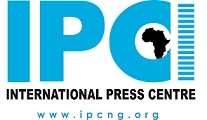A workshop on ‘Responsible Procurement Policy’ in the private security industry was held in Port Harcourt, the Rivers State capital, Thursday with private security users, made up mostly of corporate bodies in the extractive, real estate and hospitality industries, being participants at the one-day training.
Tagged, ‘Training Workshop on Development of Private Security Companies Procurement Policy’, the event, aimed at strengthening private security governance in Nigeria, was organized by a Nigerian-based non-governmental organization, AfriLaw, in conjunction with Geneva-based DCAF – Geneva Centre for Security Sector Governance and the International Code of Conduct Association (ICoCA).
AfriLaw’s executive director, Barr Chinwike Okereke, in an overview of the AFRILAW/NSCDC/DCAF Project in Nigeria, said his organisation and DCAF had been implementing the ‘Strengthening Private Security Regulation and Oversight in Nigeria Project.’
“The idea of today’s programme is to engage with private security users/clients for them to understand the need to be circumspect in the hiring of private security companies. They have to understand what the key things are that they need to look out for or consider when hiring or procuring PSCs for their individual businesses and organizations.
“We are also very much interested in these client-businesses that are in the extractive industry in a complex environment like the Niger Delta, trying to understand the peculiarities of the environment and the appropriate measures, steps and procedures they require in engaging private security companies that provide services for them.
“Today’s engagement offers our partners, DCAF, ICoCA and LITE-Africa, opportunity to offer in-depth technical knowledge and expertise to participants, as well as allows us to go into issues like the Private Security Procurement Guide being developed by ICoCA as a draft document.
“We hope that with the input provided by participants today, from their own experiences in their local environment, ICoCA can finalise the draft document which will be a very good guide for companies that want to procure the services of private security companies,” he said.
Okereke noted that the focus on client-companies for the workshop was because “these companies and organizations are the ones that make use of private security companies. They need to know what and what is required in procurement process, because if there are issues of abuse and violation of human rights resulting from a wrong selection of PSC, if the client-company had not done human rights due diligence and an issue arises from it, it is going to make a very negative impact on the company and their business.
“Our focus is to ensure that there is a ‘Responsible Private Security Procurement Process,’ which will consider human rights, gender, community relations and other related issues,” he said.
In a welcome address earlier, Antoine Perret, program coordinator, Business and Security Division at DCAF said his organization is interested in strengthening private security governance in Nigeria and to ensure that PSCs are well managed and regulated.
To this end, he said, DCAF is working with AfriLaw, starting with a baseline study carried out by the NGO, to understand the situation and how to go about improving private security governance issues in the country.
Perret said that his organization recognizes the fact that efforts to strengthen private security governance issues must include multi-stakeholder input and engagement, adding that “So, the purpose of today is to bring users of private security companies to the table to have their input and then proceed from there.”
One of the major challenges confronting the sector in Nigeria, according to participants at the workshop, is that of standards. They said standards, as to recruitment and training of PSCs employees, remain an issue that has continued to lower effectiveness and efficiency in the sector.
Dr. Damingo Levi, who runs an IT firm, Swift JDAMS, said “The issue of security is everyone’s problem. My company is a client to private security companies. The event today is a very good one. I am taking home a lot of the issues raised here today, but one of the major ones I am taking home is the issue of human rights due diligence and how our business operations will not be in deviance to existing human rights laws.
“I will say that ICoCA and DCAF are doing a very good job and that is why I say the collaboration should continue and the discussion should continue until we have a forum where policy makers and other stakeholders can be brought into the picture, while we look at getting a policy document from which laws can be derived to improve the sector.”
Another participant, Engr. Clarence Ukpongette, CEO of Clarmar Development Foundation (CDF), described the workshop as an ‘eye-opener.’ This he said is “because to go and hire a security company without the knowledge we got here today, I will not be able to select the best from the lot.
“I will say that this information needs to be spread across the industry so that other private security users can be made aware of the issues involved,” he said.
Issues of standards in the procurement of the services of a PSC, especially with regard to human rights due diligence, according to Mr Christopher Galvin, head, Communication and Outreach at ICoCA, who joined the workshop via Zoom, is vital in ensuring adherence to the ‘Responsible Procurement Policy’ canvassed by his organization.
Noting ICoCA’s mission to raise private security industry standards and practices that respect human rights and international humanitarian law, he urged participants to ensure standards are adhered to in procuring the services of PSCs so as to forestall sub-standard employment, training and procurement process, and attendant negative impact.
Further explaining ICoCA’s engagement with stakeholders in the private security sector in the bid to achieve widespread adherence to the International Code of Conduct globally, in a paper titled ‘Private Security Procurement Risks, Challenges and Opportunities,’ Galvin outlined the ‘Responsible Procurement Guide,’ which though still a draft document, is intended to guide clients on international best practices in responsibly procuring the services of private security companies.
Papers presented at the event include: ‘Addressing the Challenges of Working with Private Security Companies in Complex Environment,’ by Mr. Arinze Ojukwu, senior programme officer with LITE-Africa; ‘Private Security Procurement Risks, Challenges and Opportunities,’ by Mr Christopher Galvin, head, Communication and Outreach, ICoCA, and ‘Incorporating Human Rights and Gender Perspective in Contracting PSCs Services,’ by AfriLaw’s Chinwike Okereke.
 PH Mundial – Port Harcourt Online Newspaper News Across The Region
PH Mundial – Port Harcourt Online Newspaper News Across The Region





